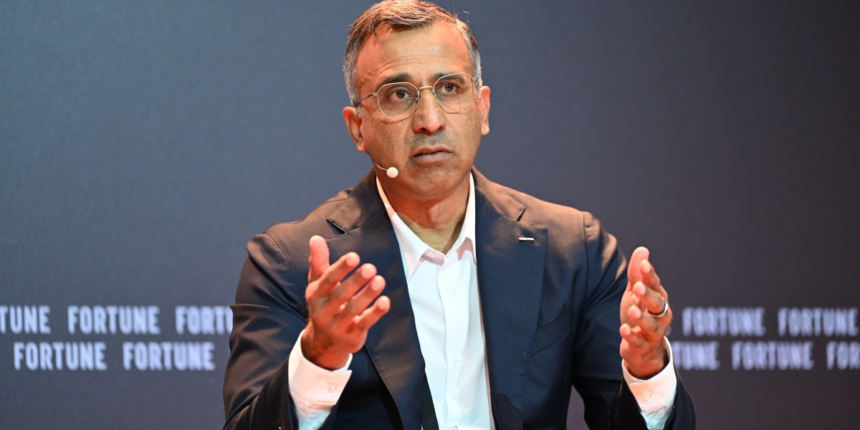Scaling gen AI projects beyond the pilot phase is fundamental to turning the current AI hype cycle into real ROI. How can companies get over the hump? For starters, they should stop trying to introduce AI to every facet of operations, says Abhijit Dubey, CEO of NTT Data, an IT services and consulting company.
“What happens is companies say, ‘In every single domain, I’m going to unleash innovation, and I’m going to have AI enablement.’ I think that’s the wrong strategy,” Dubey said at the Fortune Global Forum in Riyadh on Sunday. The right strategy, he says, is to “pick one or two domains that are going to create disproportionate economic value for the company and go end to end.” He gave the example of focusing on underwriting in insurance and supply chains in manufacturing.
Deploying AI across an organization comes with risks and requires adequate safeguards, said Fabio Kuhn, CEO of Vortexa, a cargo tracking and energy market research firm whose customers can query its data via a chat bot. Human supervision is essential to limiting hallucinations and keeping any that do slip through from shaping decision making, he said. “In addition to speed and quality, what is…increasingly important on any model, any agent, is explainability. For a human to be able to understand, why is it making the decision that it is making?” he said.
Keeping a human in the loop is essential when AI is deployed in health care, said Noosheen Hashemi, founder and CEO of January AI, a precision health care company. “These LLMs, yes, they have read everything, but they do hallucinate, and they do it confidently. When there is data missing, they will invent it,” she said, noting that January AI’s Mirror tool has a hallucination rate under 1%. “We have doctors actually looking at results and saying, ‘Does this actually make sense?’”
Health care also has its own unique hurdles to scaling AI, especially in the U.S.: data silos spread across patients, insurers, providers, and labs. The cost—in terms of potential—is enormous. “Not having a unified view of data doesn’t really allow us to leverage AI in the best way that we can,” Hashemi says. “We have the technology today, absolutely, to eradicate lifestyle-based chronic diseases in the world. The question is, to what extent do we have the will to actually apply this technology and to overcome data silos, regulatory issues, privacy issues, to actually deploy AI, because the technology is here.”









